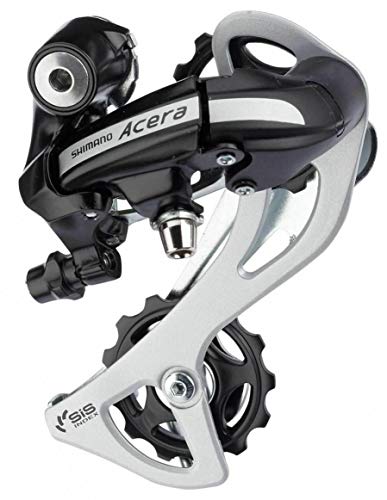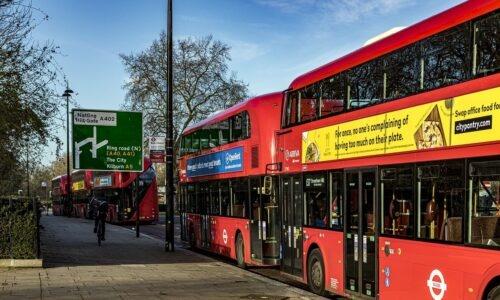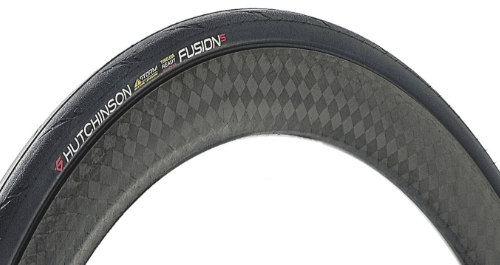This blog post is going to be looking at the Shimano Acera and Deore range of bike components and providing all the information you’ll need to help you decide which one will be best for you.
If you don’t already know, the Shimano Acera and Deore range include components such as derailleurs, shifters and other drivetrain parts, so what exactly sets them apart and why should you choose one over the other? Let’s take a look at some of the specifics of each set.
The best part about choosing any of the Shimano range is that they’re synonymous with quality and have been present in the world of mountain bikes since the dawn of time.
It’s through many years’ experience of developing the best bicycle components you can be sure that any Shimano product will deliver to suit your needs.
Features and Specifications

The Shimano Acera range of bicycle components are specifically geared towards mountain bike enthusiasts and the range includes components such as derailleurs, shifters, cranksets, bottom brackets, brakes and brake levers.
The latest version of the Shimano Acera range is the M3000 and whilst this range is dedicated towards the more budget-friendly option for entry and mid-level riders, it retains a quality design which the rider can trust that will deliver excellent performance.
Shimano Acera derailleurs
You can get the Acera in 7-9 speeds and the derailleur technology used is 9-speed Shadow. The product is lightweight and easily adjustable if any tweaks need to be made for cable tuning.
As you would expect with the range built for mountain biking, the products are built to withstand off-road bumpy ground and its performance will not be affected by rough terrain.
Crankset options: The Acera range has the option to be in 2 or 3 chainrings.
Brake compatibility: The Acera range is compatible with V-brakes, mechanical disk brakes and Hydraulic brakes.
As with the Acera range, the Shimano Deore range of bicycle components are dedicated to mountain bike enthusiasts, but where there is a difference between the two ranges is the price. So, what exactly sets the two apart and is it worth the average paying more for the Deore range?
Shimano Deore derailleurs
You can get the Deore in 10-12 speeds and the derailleur technology used here is the 12-speed Shadow Plus.
Crankset options: The Deore range has the option to be in 1 or 2 chainrings.
Brake compatibility: The Deore range is compatible Hydraulic disk brakes.
As this is a higher end suite of products the performance is better than the cheaper Acera range. The additional gearing options make the tough climbs and fast descents easier.
The braking options offered under this groupset are brilliant and will provide the rider with increased confidence when flying down fast trails, and the increased stopping power will also come in very handy in adverse weather conditions.
Key comparisons
Weight
The Deore range is lighter than the Acera range, and whilst there isn’t a lot of difference between the two groupsets, but every little bit helps especially on hilly routes where additional weight can significant.
For those looking to make weight savings which will contribute towards performance improvements the Deore range would be the more suitable choice.
Price
We have already mentioned that the Deore range is more expensive than the Acera range – there is about a £100 price different between the two groupsets depending on the retailer.
Speed
The Acera groupset only offers 9-speeds against the 12-speed option of the Deore. This is where the decisions need to be made based on the kind of riding you’re doing, but for me living in a very hilly part of the world I’d be inclined to go for the 12-speed option to help me tackle big climbs and fast descents.
Brakes
The brakes offered in the Deore range are slightly more advanced than the Acera range, however, there isn’t a massively noticeable difference for the average rider who isn’t after top performance.
Key Questions Answered
| 1 | Is there a difference in the number of gears offered between the Acera and Deore? |
| Yes, there is, which may impact your choice. The Acera typically offers 9-speed and the Deore is available in 10 or 11 speeds. | |
| 2 | Are the Acera and Deore ranges made out of different materials? |
| Yes, the Deore range of components are made from higher quality materials and will therefore be more durable and long-lasting. | |
| 3 | What level of rider does either range suit? |
| The Acera is primarily aimed at the entry level rider and the Deore is more of a mid-level product. The Deore offers more speed options and you will get a more durable set of components but this comes at a higher price. |
Are there any pros and cons to either range?
Shimano Acera
Pros
- Affordable price
- Consistent performance
- Great for beginners
- Low maintenance and simple to repair
- Durable
Cons
- Heavier than other groupsets
- It doesn’t offer as many speeds as other ranges
- Not as advanced as other groupsets
Shimano Deore
Pros
- Step up from the Acera range making it a popular choice
- Excellent performance
- High quality components
- Extremely durable
- Offers a wide range of speeds and gear ratios
- More versatile on different types of terrain
- Weighs less than the Acera range
Cons
- More expensive than the Acera range
- More intricate parts that could require more maintenance
- Too advanced for beginner riders
Price and value proposition
There’s quite a big difference between the prices of the Shimano Acera and Deore ranges. You can expect to pay around £150-£200 for the Acera range and the Deore range will set you back anywhere between £300-£350.
The Acera range is a perfect choice for those who are newer to mountain biking or those who have a limited budget. You’ll still get great performance and reliability at a cost that won’t break the bank.
For those who want to see improved performance, the Shimano Deore range is the next step in this series of groupsets – it offers higher quality components, improved performance across a number of areas, and is lighter than the Acera range.
Conclusion and Recommendations
Both the Acera and Deore ranges are excellent choices for those who are looking to upgrade their mountain bike components to a stable product that will deliver consistent performance time and time again.
The durability of the Deore range is definitely an advantage, especially for those who are taking the bike out numerous times per week, and initially spending a bit more will more than likely pay dividends over a longer period of time.
Another positive aspect of the Deore range is the fact that it offers a choice of 12-speeds which will help a lot on climbs and descents – living in a very hilly part of the world this would be my go-to choice if I was looking at new component parts.
Both ranges of products are excellent choices and you would not be disappointed with either and both will serve the rider well.
It is also largely dependent on personal circumstances such as where you ride and your available budget, but if I was going to choose a new component set for my mountain bike, I would go for the Deore range.

Mike is an experienced road cyclist and mountain biker and splits his time between the two disciplines. In his spare time he can often be found tackling the big hills and mountains of mid-Wales, attempting to beat his previous times






